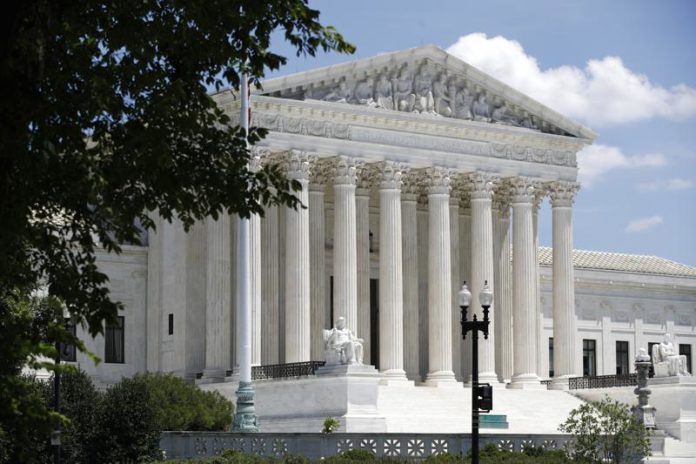
Arizona asked the Supreme Court Tuesday to allow enforcement of a ban on abortions performed solely because of Down syndrome and other genetic abnormalities.
The request from the state’s Republican attorney general, Mark Brnovich, comes as the high court is weighing rolling back abortion rights nationwide and in the immediate aftermath of a decision keeping in place Texas’ ban on abortion after about six weeks, while allowing some challenges to the law to continue.
A federal judge blocked the provision of Arizona law enacted earlier this year that would have let prosecutors bring felony charges against a doctor who knowingly terminates a pregnancy solely because of a genetic abnormality. A federal appeals court also refused to allow its enforcement.
Several Republican-led states have enacted laws prohibiting abortion based on a fetal diagnosis of Down syndrome or other genetic issues, among hundreds of new abortion restrictions put in place in recent years.
The federal appeals court in Cincinnati allowed Ohio’s law to take effect and appellate judges in St. Louis are deliberating over a similar law in Missouri.
When the issue last came to the Supreme Court, in 2019, the justices rejected Indiana’s appeal over enforcing its law, which also prohibited abortion because of the race or sex of the fetus. Justice Clarence Thomas wrote a lengthy opinion in which he said the Indiana law “and other laws like it promote a State’s compelling interest in preventing abortion from becoming a tool of modern-day eugenics.”
Arizona also prohibits abortions over race and sex, but those provisions are not at issue.
Brnovich argued in court papers that the law furthers Arizona’s interest in protecting the disability community from discrimination. He also wrote that it’s not right to call the law an abortion ban. A woman still could obtain an abortion in such circumstances if she doesn’t say why she wants one or makes a decision independent of a fetal abnormality, among other reasons, he wrote.
The case goes first to Justice Elena Kagan, who handles emergency requests from Arizona.
Republished with the permission of the Associated Press.













